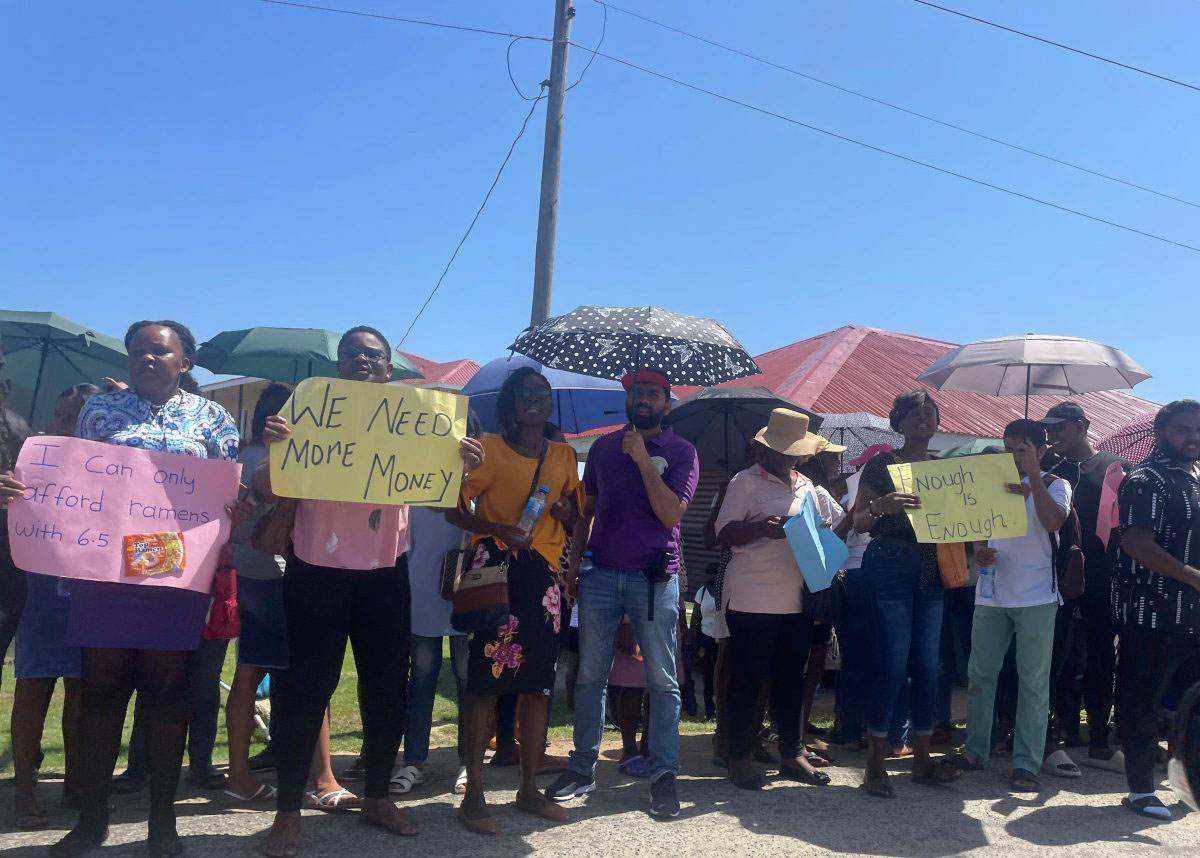A number of civil society groups including the GHRA and the GTUC have expressed grave concern over the negative impacts of the recently concluded teacher strike and the government’s handling of the issue.
These observations were set out in a statement yesterday from the General Workers Union, the Guyana Human Rights Association (GHRA), the Guyana Organization of Indigenous People, the Guyana Teachers’ Union (GTU), the Guyana Trades Union Congress (GTUC), Red Thread, Policy Forum Guyana and Transparency Institute Guyana Inc.
The groups said that the statement was prepared before the end of the strike on Friday and then amended.
The statement noted that 2024 marks 148 years since the signing of the Compulsory Education Bill which set the nation on a path to almost universal literacy by the time of Independence. It expressed its concern regarding the strike over what it saw as the “callous and discriminatory manner” in which negotiating processes were prolonged, “uninfluenced by either the judiciary or the principles of collective bargaining.” Further, the fact that the government chose to deal directly with teachers rather than their trade union does not bode well for the future of constitutional protections for collective bargaining agreements. It also noted that public opinion on this issue counted for very little.
As such, the experience of the strike reflected an indifference to the long- and short-term costs to teachers, students, families, the education system and the society as a whole.
Also noted was the government’s refusal to accept the High Court verdict on the legitimacy of the strike, along with threats to appeal to the Caribbean Court of Justice, which the signatories interpreted as delaying tactics designed to drag things out, a strategy, it opined, that risked poisoning long-term relations between the Ministry and the union. Sadly, it added, such delays benefit from social media’s “hollowing out” of the public’s capacity to focus on an issue for any length of time.
The association weighed in on the government proposal to pay the fees of students who enroll in private sector education institutions, remarking that it “insinuated an assault on public education in general, a form of corrupted power versus ‘the people.’”, adding, “The fundamental concern compelling our statement is to constrain government’s coldness to human suffering when addressing political issues.”
The statement set out what it considered to be some of the long-term social costs to the country as a result of the administration’s preference for not operating in a principled manner: 1) Students’ education is weakened permanently. 2) Teachers are lost to the profession as interim jobs to make ends meet become permanent. Striking teachers made ends meet by driving taxis, fishing, doing construction, mining, and giving private lessons. 3) Ethnic divisions in the society were aggravated. 4) Trolls invaded Zoom meetings that were hosted to update teachers with filthy, pornographic taunting. 5) Respect for the Judiciary was eroded by government’s resistance to accept either its judgments or its advice. 6) Sharp increase in rate of male teachers leaving the profession. 7) At the last graduation of 1,709 teachers, only 233 were males. 8) The strike graphically highlighted the uneven conditions affecting teachers and pupils in rural and urban areas.
It also pointed out that in addition to the aforementioned costs to the society, the long strike impacted what is known in the profession as ‘non-academic standards’. These standards, it explained, include such things as class size, sanitary facilities, laboratories, and sports facilities, and along with dilapidated structures, compromises on these standards further erode the morale of teachers.
The signatories to the statement are therefore calling on the government to “adopt a more dignified and legally defensible approach to resolving future industrial disputes. “
Striking teachers are set to return to their classrooms by Tuesday after the Ministry of Education and the GTU reached an agreement on Friday on terms of resumption to end the gruelling strike. Talks will continue on June 26 on a multi-year agreement. The strike had been ongoing, in two segments, since February 5th this year.









